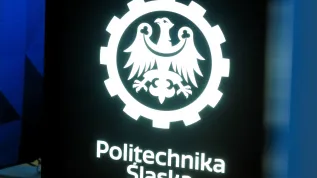Gdańsk/ Scientists have developed a new method for purifying pollutants from water

26/07/2025 update: 26/07/2025
2 minutes of reading
A team of scientists from Gdańsk and Wrocław has obtained a patent for an invention that removes contaminants affecting the endocrine system from water. This innovative method reduces the costs of purifying surface waters of biologically active compounds, including drug residues.
UG spokeswoman Magdalena Nieczuja-Goniszewska said in a statement that the patented method involves the use of so-called non-thermal atmospheric plasma.
She explained that the process is carried out using a specially designed system in which a flowing aqueous solution is exposed to cold plasma generated in air at atmospheric pressure by initiating a glow discharge.
She stated that the innovative nature of the method is related to, among other things, the continuous and flow-through nature of the reaction-discharge system, the ability to simultaneously and effectively remove at least 7 different biologically active contaminants, and the lack of the need to use noble discharge gases, which reduces the costs of the entire process.
The invention will contribute to solving the problem of environmental pollution, including surface waters, with endocrine-disrupting chemicals (EDCs), enabling their effective degradation in a process that does not require the use of harmful substances such as reducing agents or oxidizing agents.
Dr. hab. Magda Caban, prof. UG, said that cold atmospheric plasma is a promising technology for wastewater treatment, offering many advantages over traditional methods, including high efficiency, environmental safety, and ease of use.
The invention was developed by scientists from the Intercollegiate Faculty of Biotechnology of the University of Gdańsk and the Medical University of Gdańsk and the Faculty of Chemistry of the University of Gdańsk in cooperation with researchers from the Wrocław University of Science and Technology.
The solution has been tested in the laboratory. The next step is testing in real-world conditions and preparing for implementation.
The invention could find applications in industries such as the pharmaceutical industry and agriculture, reducing the negative impact of this type of infrastructure on the natural environment. (PAP)
Science in Poland
pm/ agt/
The PAP Foundation permits free reprinting of articles from the Nauka w Polsce website, provided that you notify us by email once a month of your use of the website and cite the source of the article. On portals and websites, please include the linked address: Source: naukawpolsce.pl, and in journals, please include the annotation: Source: Nauka w Polsce website - naukawpolsce.pl. This permission does not apply to information in the "World" category or any photographs or video materials.
Before adding a comment, please read the Forum Rules of the Nauka w Polsce website.
Dear Reader, In accordance with the Regulation (EU) of the European Parliament and of the Council of 27 April 2016 on the protection of natural persons with regard to the processing of personal data and on the free movement of such data, and repealing Directive 95/46/EC (General Data Protection Regulation), we hereby inform you about the processing of your data. The data controller is the PAP Foundation, with its registered office in Warsaw at ul. Bracka 6/8, 00-502 Warsaw. This data is collected as part of your use of our services, including websites, services, and other functionalities provided by the PAP Foundation, primarily stored in cookies and other online identifiers installed on our websites by us and our trusted partners of the PAP Foundation. The collected data is used solely for the following purposes: • providing services electronically • detecting abuses in services
• statistical measurements and service improvement
The legal basis for data processing is the provision and improvement of services, as well as ensuring security, which constitutes the legitimate interest of the controller. Data may be shared, at the request of the controller, with entities authorized to obtain data under applicable law. Data subjects have the right to access, rectify, and erase data, and to restrict their processing. They may also withdraw consent to the processing of their personal data.
Please send all notifications regarding personal data protection to [email protected] or in writing to the PAP Foundation, ul. Bracka 6/8, 00-502 Warsaw, with the note "personal data protection"
More information about the processing of personal data and your rights can be found in the Privacy Policy. Learn more. I consent
naukawpolsce.pl







